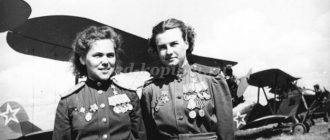The project is dedicated to the 70th anniversary of Victory in the Great Patriotic War
The project is dedicated to the 70th anniversary of Victory in the Great Patriotic War and is aimed at educating citizenship and patriotism. Students will learn about the exploits of Soviet people during the Second World War. They collect information about relatives and acquaintances, about all those whose fate was in one way or another affected by the Great Patriotic War. These could be combatants, children of war, home front workers, etc. depending on the capabilities of the team.
Questions guiding the project:
The fundamental question is: how will the memory of war help preserve peace?
Problematic issues:
- Why do people cry on holiday?
- Why do people remember the Great Patriotic War?
- Why is “generational connection” important to us?
Private questions:
- What do we know about the Great Patriotic War? What works of art remind us of this war?
- How do you become heroes in war?
- How can we preserve the memory of the events of that war?
Business card of the project dedicated to the 70th anniversary of Victory in the Great Patriotic War
Implementation plan for the project “We Preserve Eternal Memory”
Patriotic War of 1812
It is very important to be interested in the history of your country. This year I heard very often about the anniversary of the Battle of Borodino and I wanted to know more about it. Therefore, I chose the Patriotic War of 1812 as the topic of my work.
In 2012, we celebrated the 200th anniversary of the Battle of Borodino, perhaps the largest and most significant battle for Russia in the 19th century.
More than once Russia had to defend its freedom and independence. And always, thanks to the selfless struggle of the Russian people, the plans of the invaders were defeated.
begun by Alexander I were interrupted by Napoleon's invasion of Russia in 1812.
Napoleon Bonaparte is a man of unusual destiny. He was born on August 15, 1769 on the small island of Corsica, owned by France. The son of a poor nobleman, Napoleon graduated from the military academy in Paris when he was 16 years old. At the age of 24 he was already a general, then became consul of France, and in 1804 Napoleon was proclaimed emperor. France was at war almost continuously.
In the end, Napoleon became the ruler of Europe. But he wanted to conquer the whole world. “In three years I will be the ruler of the world... Russia remains, but I will crush it,” Napoleon said before the invasion of Russia. He even ordered a medal with the image of God and the inscription “Heaven for you, earth for me” to be knocked out.
Napoleon gathered 638,000 troops from the peoples under his control and moved them to Russia.
“I’m going to Moscow,” he said, “and in one or two battles I’ll finish everything. Emperor Alexander will be on his knees to ask me for peace.”
Napoleon gathered 638,000 troops from the peoples under his control and moved them to Russia.
“I’m going to Moscow,” he said, “and in one or two battles I’ll finish everything. Emperor Alexander will be on his knees to ask me for peace.” Indeed, everything foreshadowed undoubted success for the French: enormous forces, the genius of the commander, his luck and invincibility. Among the Russian people, the name of Napoleon spread some kind of mysterious fear. But the general opinion was this: it is better to die than to submit to a hated enemy.
The Patriotic War began on June 12, 1812 . Having crossed the Neman River, Napoleon sent one detachment north to the city of St. Petersburg, and he himself with the main forces rushed to Moscow. Napoleon was confident of an imminent victory. Three Russian armies were stationed on the western border. The Supreme Commander-in-Chief of the Russian army was Emperor Alexander 1.
The size of the armies was about 240,000 people. Napoleon hoped to defeat them one by one. But experienced Russian military leaders figured out the enemy’s plan.
Mikhail Illarionovich Kutuzov was appointed commander-in-chief of the Russian army at the most crucial moment for Russia. “Kutuzov has arrived to beat the French,” the soldiers said. He had long been known and loved among the troops. Mikhail Illarionovich Kutuzov was born on September 5, 1745 in St. Petersburg.
At the age of 14, he graduated with honors from the Noble Artillery School. From the age of 16 he was a warrant officer, company commander of the Astrakhan Infantry Regiment. He took part in numerous wars that Russia was waging at that time.
Kutuzov was familiar with the tactics and art of Napoleon in practice. In 1805, Russia helped Austria against Napoleon. The Russians were then commanded by Kutuzov. Napoleon forced the Austrians to surrender before they could link up with the Russians. Kutuzov was forced to retreat. The retreat was made 350 miles and was accompanied by such skillful and cunning maneuvers that Napoleon called Kutuzov a “cunning fox.”
Now, when Napoleon took Smolensk and was approaching Moscow, Alexander 1 was forced to appoint Mikhail Illarionovich Kutuzov as commander-in-chief of the Russian army. Kutuzov was then 67 years old. The new commander-in-chief, having arrived at the army, said to himself: “How can you retreat with such fellows!” Everyone was looking forward to the fight. But the next day the order was given to retreat.
On August 26 (September 7 according to the new style), 1812, 124 kilometers from Moscow near the village of Borodino , the largest battle took place between the Russian and French armies.
Tell me, uncle, it’s not for nothing that Moscow, burned by fire, was given to the Frenchman. After all, there were fighting fights, and they say there were more! It’s not for nothing that all of Russia remembers Borodin’s Day! - writes M. Yu. Lermontov.
Two roads passed through the village of Borodino. Having occupied them, the Russians blocked the French’s path to Moscow.
And then we found a large field: There is somewhere to roam in the wild! They built a redoubt. Our ears are on top! As soon as the morning illuminated the cannons and the blue tops of the forests, the French were right there.
On the Borodino field, two huge armies stood opposite each other: 135,000 soldiers and 580 guns for Napoleon and 120,000 soldiers and 640 guns for Kutuzov.
The Russian army was commanded by experienced military leaders: Pyotr Ivanovich Bagration, Barclay de Tolly, Nikolai Nikolaevich Raevsky, Nikolai Alekseevich Tuchkov The main blow of the French fell on
Bagration's .
Barclay de Tolly commanded the 1st Army during the battle. After stubborn battles with Bagration's army, the French threw all their forces at the central front, commanded by Barclay de Tolly. The entire time the battle was going on, the general was on the front line, in close proximity to the enemy, on horseback. Bullets whistled, shells exploded, showering the general with clods of earth. But the general did not try to take cover. After the next explosion, he shook off his uniform and continued to command the battle.
The skillful, impeccable actions of General Nikolai Nikolaevich Raevsky, who commanded the battery in the center of the Borodino field, determined the fate of the entire battle. The artillerymen's targeted fire kept the enemy's attack line under control, and the infantrymen fought bravely on the approaches to the height where the battery stood.
The French suffered huge losses in the Battle of Borodino - 60,000 killed. However, Russian losses were also great - over 40,000 killed. It was risky to continue the fight. Kutuzov decided to withdraw the army to Moscow. On the morning of August 27, the Russian army left the Borodino field. Give a new battle or surrender Moscow without a fight? These doubts tormented Kutuzov. The generals insisted on battle.
On September 1, a military council met in the village of Fili. Kutuzov understood that going to battle meant risking the fate of the Fatherland. At the military council, Kutuzov made a difficult decision: to leave Moscow, save the army and prepare for the next battles.
On September 2, the Russian army left Moscow. On the same day, the advanced detachments of the French entered Moscow. The French Emperor Napoleon expected Muscovites to bring him the keys to Moscow, as was the case in many European cities. But Moscow was empty. This stunned Napoleon
French soldiers began to plunder Moscow. And soon fires started. They burned for several days.
A partisan movement developed around Moscow. Small partisan detachments attacked individual parts of the French army.
During his month in the capital, Napoleon lost 30,000 of his soldiers. Food supplies have dried up. The great and invincible army turned into a gang of robbers and robbers.
Napoleon understood that the army was disintegrating. Without waiting for a proposal to conclude peace, Napoleon left Moscow. Kutuzov, stationed in the town of Turutino near Moscow, blocked the French army’s path to retreat along the New Smolensk Road, which had not yet been destroyed by the French.
Having suffered heavy losses in the battle of Maloyaroslavets, Napoleon turned his army around and led along the Old Smolensk Road.
The Great Patriotic War - a booklet for parents
The booklet for parents introduces a summary of the project and answers key questions. During the project, students will conduct research, get acquainted with works, collect and publish materials about the Great Patriotic War.
An example of a student project activity product
Diary of the “Luchiki” team in Rasskazovo, contents:
- Self-assessment sheet: Stage 1 “Getting to know each other”
- Stage “Memory of the Second World War” and description
- Self-assessment sheet: Stage 2 “Memory of the Second World War”
- Team work at the stage “Memory of the Great Patriotic War”
- Self-assessment sheet: Stage 3 “Celebration with tears in our eyes”
- Self-assessment sheet: stage 4 “Connection of generations”
- Self-assessment sheet: final stage
Thanks to this project, we learned many previously unknown facts about the Great Patriotic War of 1941-1945. It was very interesting for us to study the history of our country not only as part of the educational process, but from additional sources of information, which is what this project is.
Working on the project turned out to be very interesting and educational.
Joint actions and discussions brought together a team of teachers, children and parents. The team shared the knowledge they gained with the whole class, relatives, and others.
Diary of the team "Luchiki"
Interview with veteran Stepanova Galina Sergeevna
War is an essay
Drawing competition “Let there always be sunshine”
Drawing competition “Let there always be sunshine.” The works were completed by our participants and are posted in the center’s gallery.
Formative and summative assessment materials
Materials for formative and summative assessments are presented in the form of various tables and forms. They allow you to evaluate the activities of project participants at each stage. Here are materials for the project dedicated to the 70th anniversary of Victory in the Great Patriotic War.
Table Z-I-U-K
Personal participation table
Form for self-organization of work within a team
Self-assessment forms
Interview preparedness form
Reflection for project participants
Project “Many destinies - one war.”
Project “Many destinies - one war” |
Dear friends and guests of our library!
We are launching a new project dedicated to the upcoming date - the 75th anniversary of the Great Victory: “Many destinies - one war.” Each of us, in each home, in the family, has its own story, its own small victory. We set ourselves a goal - to collect as many such stories as possible: those who went through the war, those who were children at that time and saw everything differently, those who survived the occupation. If your family has a history passed down from generation to generation, if your grandparents remember Rostov during the war years or any other city, become part of our project. Tell your story, and let it enter our chronicle of those events, becoming another piece of this large canvas of destinies, because it is from such small personal victories and lessons that this great date consists.
You can send your stories to our email [email protected] with the subject “Many destinies - one war.” If you have any questions or suggestions, you can contact us by email or phone. Contact person Zvereva Galina Vasilievna.
For material requirements, see the memo for the project “Many destinies - one war.”
Relevance of the project:
In 2022, a significant date awaits us - the 75th anniversary of Victory in the Great Patriotic War (1941-1945). With every decade we move further and further from those events: the connection between generations is lost, veterans leave. And now, more than ever, it is important to preserve and replenish this connection. Of course, the best ground for this work is your own family history. Preserving this personal heritage helps maintain the continuity of generations and not forget about that great feat. Each family has its own story of victory, and from these small threads of human destinies a huge fabric of history is woven.
Therefore, the creation of the project “Many destinies - one war” is aimed at restoring the memory of the events of those years, at nurturing pride in one’s roots and heritage, and involves attracting a wide audience.
Project goals:
• Formation of ideas about the history of the Great Patriotic War.
• Strengthening connections between generations.
• Fostering a patriotic feeling and respect for the feats of our ancestors.
Project objectives:
• Collecting materials: family stories, photographs, letters.
• Analysis of the received data and compilation of texts.
• Video recording of participants.
• Layout and design of materials.
Project participants:
Employees of the Rostov Regional Children's Library named after V. M. Velichkina, as well as everyone interested: readers and guests of the library, parents, teachers, are participating in the implementation of the project.
Implementation stages:
1. Preparatory: collecting materials and recording videos (September 1 – October 31, 2022)
2. Main: processing of received data (November 1 – December 31, 2019)
3. Final: creating a booklet and film (January 9 - April 15, 2022)
Expected Result:
During the implementation of the project, people of different ages and professions will be involved, which will contribute to their unification and strengthening of the collective spirit, will help draw attention to the military history of their country and see new pages in it. The booklet and film released as a result of the project will include all the stories and will be posted on the library’s official website and on social networks, which will attract public attention to this topic.
Authors of the project:
Employees of the Rostov Regional Children's Library named after V. M. Velichkina: Zvereva Galina Vasilievna and Gavrilova Marina Yuryevna.
Results:
During the implementation of the project, people of different ages and professions were involved, which, according to employees of the Rostov Regional Children's Library, will help draw attention to the military history of our country and see new pages in it.
Due to circumstances beyond the control of the library staff, not everything planned within the project was able to be implemented to the end. But on these pre-holiday days in May, we offer our readers a booklet
and an interactive poster, which include stories told by project participants. The booklet and interactive poster “Many destinies - one war” are posted on the library’s official website and the institution’s social media accounts on VKontakte and Instagram.
Interactive poster:



